Speeches Shim
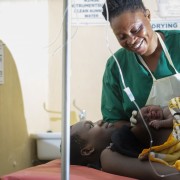
She was minutes old when we met her cuddled on her mother. Linda Chepkemboi rested her hand protectively over her baby. This 19-year-old mother was tired but happy, and her child, yet to be named, was her first. Linda was forced to drop out of school and leave her parents’ home, when she discovered she was pregnant.
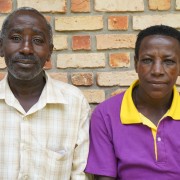
Fifteen years ago, Lauben Agaba, a farmer and father of five children, tested positive for HIV at Rushooka Health Center located in the southwestern Ugandan district of Ntungamo. His wife Ruth tested negative; both thought there was no hope for their family.
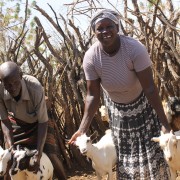
Karamoja is a magically beautiful, but arid and intensely hot region in northeast Uganda. Slowly recovering from decades of ethnic conflict and instability, it remains the least developed area of the country. Its pastoralist communities are deeply rooted in tribal traditions, with strong gender disparities between men and women. While women rarely make decisions in the family, small but significant changes are starting to sprout, initiated by the women themselves, turning a life of obstacles into potential opportunities.
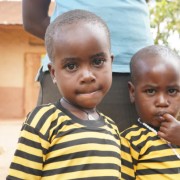
In Uganda, three out of 1,000 women who give birth die from complications ― often the result of giving birth at home instead of a hospital. Gerversio Muheereze, a farmer in the village of Kayonza in southwestern Uganda, knows firsthand the danger that expectant mothers face. His wife passed away while giving birth to their eighth child at home, but their baby survived. “Soon after my wife’s death, the local health center came to talk to me about what happened and I learned about the importance of antenatal care and getting regular health services for my family,” said Gerversio.
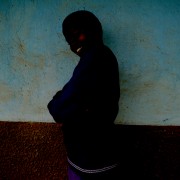
Sixteen-year-old Lisa did not know the value of interaction with peers until she joined the Ariel Club. In a small village of Kayonza in southwestern Uganda, Lisa, a middle school student, lives with her grandmother. She didn’t know that she was born with HIV until she was twelve years old. “At first it was very hard. I always felt sick, I never interacted with other children at school and never participated in any extracurricular activities,” she says.

Comment
Make a general inquiry or suggest an improvement.